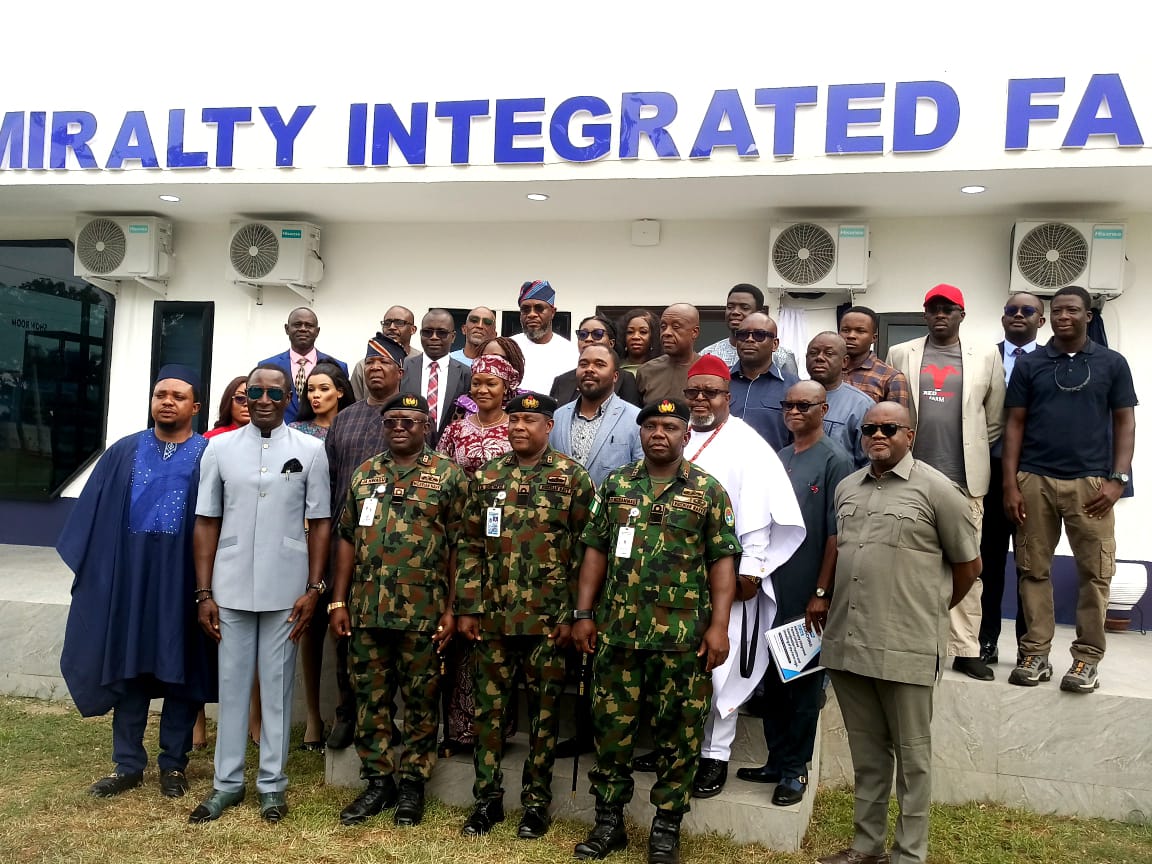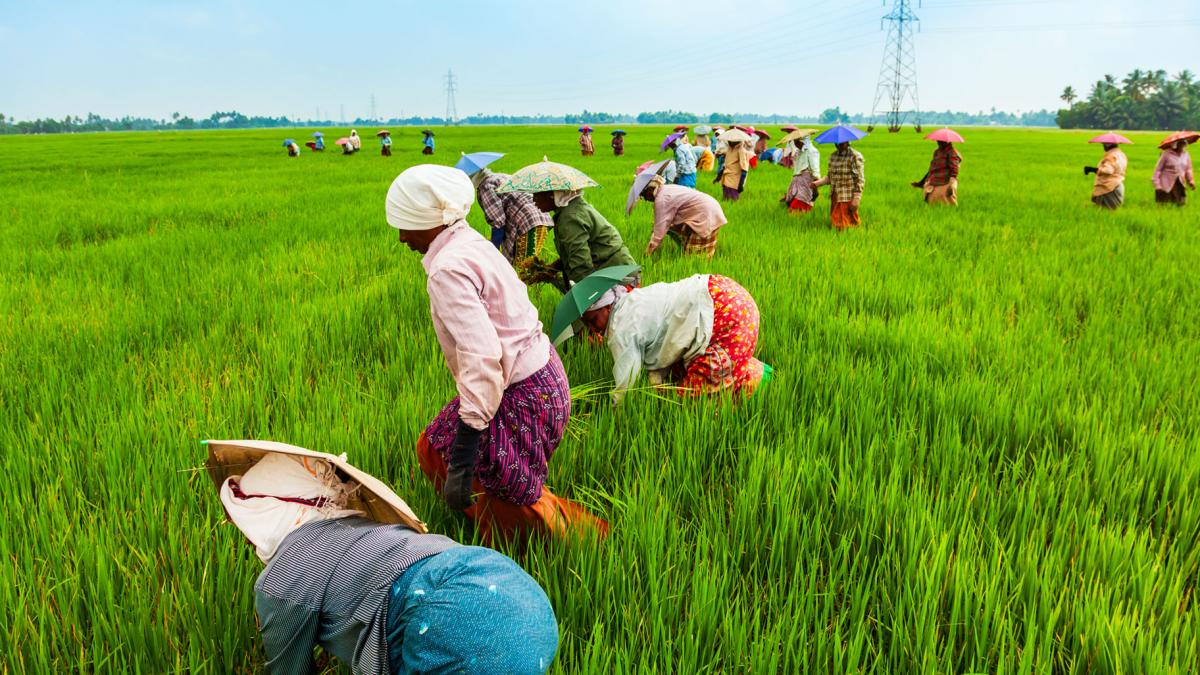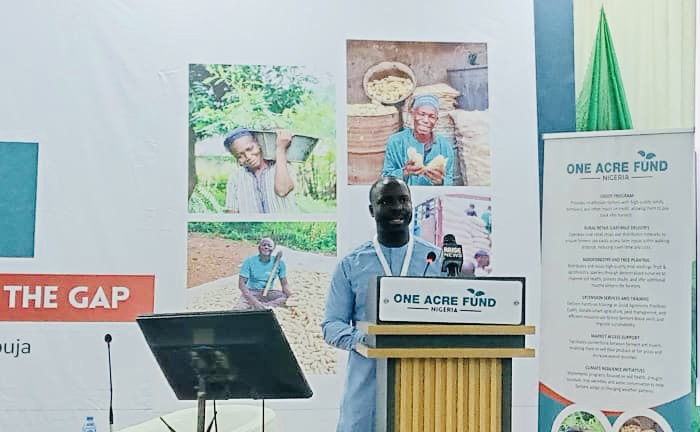Nigerian Navy unveils farm to boost food security
By Sumaila Ogbaje
In a bid to contribute to the Nigerian Government’s drive to boost food security, the Nigerian Navy has embarked on an innovative agricultural initiative to cultivate crops and promote self-sufficiency.
The Chief of Naval Staff (CNS), Vice Adm. Emmanuel Ogalla, disclosed this during the unveiling of Admiralty Integrated Farms Limited (ADIFAL) Coordination Centre and Logo, in Abuja on Wednesday.
Ogalla, represented by the Chief of Policy and Plans (Navy), Rear Adm. Ibrahim Dewu said the occasion marked a significant milestone in their collective effort to contribute meaningfully to the nation’s development, which is in line with the President’s visionary directive.
According to him, the President has emphasised the importance of the Armed Forces engaging actively in farming initiatives.
Ogalla said the directive aims to address some critical issues confronting the nation such as the persistent conflicts between herders and farmers, banditry and kidnapping and the urgent need to boost food security.
“It is heartwarming to see our naval personnel taking up this challenge with dedication and patriotism, exemplifying the spirit of service and commitment that defines our Armed Forces,” he said.
Ogalla commended the management and officers and men of ADIFAL for their efforts and dedication, urging them to continue with the vigor and resolve to meet the lofty goals set before them.
He added that the initiative underscored the importance of civil-military cooperation to foster a spirit of collaboration and understanding with the civilian counterparts.
“Our interactions should be fair, respectful and rooted in the shared goal of national development.
“Civil-military synergy is crucial in achieving sustainable solutions, especially in areas such as agriculture where the benefits extend across all facets of the society.
“Let me reiterate that the success of ADIFAL hinges on our collective resolve and unwavering commitment.
“Your efforts will not only contribute to food sufficiency but will also promote peace and stability in our communities and the entire country,” he added.
In his brief, the Managing Director and Chief Executive Officer of ADIFAL, Rear Adm. Julius Nwago, said that food, nutrition and security were prime goals that governments seek to achieve globally.
Nwago said that one of the options adopted by some countries to achieve food security was the engagement of the military into agriculture.
According to him, military agricultural farm facilities in the world consider size, production, sustainability practices, and specific focus areas.
He said the farm would adopt a comprehensive precision agriculture model that begins from the earliest stages of farm planning-right from land clearing and crop selection-through planting, crop nurturing, harvesting, storage, and processing.
According to him, Artificial Intelligence (AI) and Machine Learning (ML) are key enablers in each stage, providing data-driven insights that help maximize yield, reduce waste, and improve decision-making.
“To facilitate this, ADIFAL has developed the ADIFAL Agro-precision Farming Platform – a centralised digital system that guides onboarded farmers in practicing precision agriculture.
“This platform draws on data from Satellites, Radar, Drones, and Live Visual/Audio Feeds to deliver intelligent recommendations throughout the agricultural lifecycle.
“The platform which is the Centerpiece of ADIFAL’s innovation is housed at the centralised ADIFAL Coordination Centre.
“The platform features Predictive Al models and Generative Al tools that provide real-time responses to farmers’ questions and concerns during the farming season,” he said. (NAN)
Edited by Benson Iziama








 He added that more than 1,300 young people had been trained in technical fields such as pump installation and drilling technology.
He added that more than 1,300 young people had been trained in technical fields such as pump installation and drilling technology. He thanked President Bola Tinubu for his support and acknowledged the efforts of state governments, development partners, stakeholders, and the media.
He thanked President Bola Tinubu for his support and acknowledged the efforts of state governments, development partners, stakeholders, and the media.

 According to the minister, the TRIMING project, which spanned more than seven years, delivered notable achievements, including the completion of the Dadin-Kowa and Bakolori irrigation schemes and 90 per cent completion of the Middle Rima Valley irrigation project.
According to the minister, the TRIMING project, which spanned more than seven years, delivered notable achievements, including the completion of the Dadin-Kowa and Bakolori irrigation schemes and 90 per cent completion of the Middle Rima Valley irrigation project.  Gov. Babagana Zulum of Borno, raised concerns over the shrinking farming seasons caused by climate change, warning that unpredictable rainfall patterns were creating uncertainty among farmers.
Gov. Babagana Zulum of Borno, raised concerns over the shrinking farming seasons caused by climate change, warning that unpredictable rainfall patterns were creating uncertainty among farmers. Arcieri emphasised the role of young professionals in driving sustainable solutions to the continent’s water challenges.
Arcieri emphasised the role of young professionals in driving sustainable solutions to the continent’s water challenges.



 Adegbite stated that the dialogue aimed to build a sustainable and resilient food system for future generations.
Adegbite stated that the dialogue aimed to build a sustainable and resilient food system for future generations.